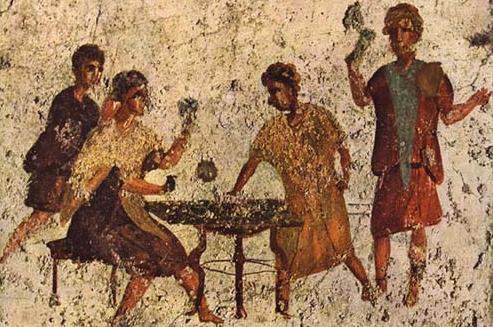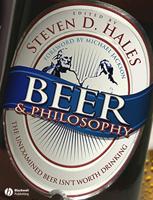One of the cheatiest cheats a lazy beer blogger can foist is the copying of comments made elsewhere. But, and this is #7 on the list of the failings of the internet, you put out all that information our there, all those clever turns of phrase and they are lost to eternity as certain as a clever remark made on a radio show in 1937 floated away, dispersed in the ether.
And there is a lot of good thought going on out there. Pete Brown posted a post last Monday and good comments keep trickling in. The post was about, well, it can be summarized by this:
…just to be clear, they’re offering you money to take ads, and turn them into editorial on your blog…
A host of opinion followed. It is sort of an extension of the idea of why there is so much unhappy cranking out there but it’s also interesting in that it is getting a bit to the point on the relationship of value and writing. The only unfortunate thing is that its title suggested that confusion of this relationship was a first nail in the coffin of blogging.
First, the first nail in that coffin was long ago, likely caused by the first wire that connected a personal computer to the global system. But really, second, the question of what makes you a good writer or a poor writer ought not to be defined by one’s position of employment or unemployment in relation to the given subject matter. It really ought not be connected to the nature of the benefit one receives, if any, in response to one’s writing. I’ve been a professional writer in another context, law, for almost two decades now. The fitness of my larder depends on the fitness of my thought. Unlike beer writing, however, there has always been the assumption that my writing is open for criticism due to the adversarial system of justice I chose to work within all those years ago. The red pen of the professor was replaced by the articling principle, then the senior partner, then the judge. On top of that is the giddy joy of having everyone and his dog coming up to you on a daily basis to let you know that you must be a scoundrel, a liar and a thief.
What does this have to do with a beer blog? Well, consider this comment from Lew in response to this comment from me:
Alan, I can see junkets swaying folks — and I’m trying to do more on my own dime because of that — but they do give a writer an opportunity to soak up information, particularly on the right junket. I’ve been on several junkets that I never wrote stories about — I never said I would — but I’ve used some of the other stuff I’ve picked up on the trip.
But samples? I’m sorry, I cannot be bought for a 12-pack. And if I don’t like the beer, I’ll either say so on my blog, or I’ll send the folks who sent me the stuff a polite e-mail, saying I didn’t like it, and here’s why, and thanks, maybe some other time. I just don’t see samples as swaying. And neither do any of my editors, some of whom have pretty tight ethics policies: they all make exceptions for samples. The New York Times is quite ethical: they take samples. It’s easy to take them and stay honest once you realize that there are 10,000 breweries in the world: you’re afraid of pissing off a couple? Screw ’em! Besides, I still get samples from breweries I’ve reamed. They know how this works.
Greg, we maintain that kind of firewall at Malt Advocate. I’ve never once been asked to write or run a story because of ad concerns, and we’ve lost advertisers because of reviews. We’ve gained readers, though, and that has made the ads that other producers bought more profitable.
The only thing I don’t like about bloggers as a professional writer…is the holier-than-thou attitude some of them take. I did say “some”!
To which I responded this morning:
I think your “holier than thou attitude” problem is a shared one with professional beer writers, too, as that is just another aspect of integrity. The person who starts the day thinking they are clear of these issues or gets a head start on them because of previous record or other business connections is in breach of Grannie rule #1: handsome is as handsome does. But, as I thought when an acquaintance who was a professional humour writer started to blog – it must be very odd having those comment things now showing up at the end of a professional writers pieces for someone who has been at it for decades. It is not just the attitude of blogging is the the mere fact of its existence that creates such a broad brush of archived response to this column or that beer – this is only so much one can say, isn’t there? I was quite shocked when a good brewer, for example, when on about the “HateBeer” forum on the internet but who would have thought that pursuing one’s dream as a craft brewer would mean being pursued by a gang of note taking cranks.
I have to apologize for the lengthy copying without even asking but, as it was triggered and/or written by me I am content with the etiquette. But look at what is happening – it’s a part of a larger discussion of very specific ethics in relation to a very specific trade and, as I live with daily, suggestions of impropriety being slung back and forth. This is great stuff and not only because Lew is one of my favorite turners-of-phrase and beer ethicists whose point sits in a flow of other very interesting thoughts on the topic. It is great because it is robust and healthy. It is also starkly open, something we beg for in other parts of life like government and commerce. Remember how blogging was supposed to make business and politics personal and open and real? Remember how that flopped? Well, it has not flopped in some niche areas and this is a fine example.
But underneath all it is that call for integrity; a challenge that if you are going to state opinions that they be as true and as honest as you can make them. Enthusiasm – whether it is over your beer or your politics or your faith – can be a devious trap, attracting accolades and acolytes as well as other benefit. To some, if you get enough benefit in relation to your enthusiasm, well, that makes you a professional in your mind. To others, that only occurs when you earn the benefit through the application of integrity no matter what the context which, given a dose of humility, may be an honour that one never quite achieves.
Anyway, these are just thoughts over Cheerios as the baby has her bottle. As with any writing, it is only the reader who can say if they are worth anything just as it is only the noble drinker who can say if the work of the brewer has achieved any standard. Yesterday, I had the pleasure of having a new to me local craft beer from a brewer who has until recently made only that one beer and am happy to report it was better than I could have imagined. I don’t know if I have ever had that sort of experience with writing – but that may be the difference between text and ale. The one by its nature should never be expected to completely satisfy. It should challenge and leave you mulling. It should trigger cranks. It can’t be expected to immersively and completely satisfy like good beer.


